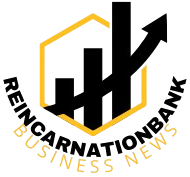
The importance of crafting a well-written, eye-catching resume cannot be overstated. It is your first impression to potential employers and an essential tool that showcases your strengths, skills, and experiences. As trends and technologies change, so should your resume. A strong understanding of how to create an effective resume in 2024 can help you stay ahead of the competition and land your dream job. This article highlights the crucial ten sections of a resume you must include to maximize your chances of success.
To begin with, let’s start by taking a look at a useful Curriculum vitae template that features all these essential sections:
- Contact Information
- Resume Summary or Objective
- Key Skills
- Work Experience
- Educational Background
- Awards and Achievements
- Certifications and Licenses
- Digital Skills and Online Presence
- Professional Affiliations
- Volunteer Work and Extracurricular Activities
Now, let’s take a deeper dive into each section to give you a better grasp on their significance and best practices for 2024:
1. Contact Information
Even though it might seem basic, providing accurate and up-to-date contact information is crucial. Prospective employers need to reach out to you easily. Include your full name, phone number, and professional email address. Make sure your email address looks professional and avoid using unprofessional sounding addresses like “[email protected]”. Also, consider incorporating your LinkedIn profile, as many employers now check a candidate’s online presence before making a hiring decision.
2. Resume Summary or Objective
The resume summary or objective is a brief statement that lays out your professional goals and summarizes your most attractive skills and experiences. This section should cater specifically to the job you are targeting, showing the employer why you are an ideal fit for their needs.
Resume Summary Best Practices:
- Keep it concise – usually 3-5 sentences are ideal.
- Highlight your most significant achievements, skills, and experiences relevant to the job opening.
- Finesse your language to suit the industry jargon and company culture.
3. Key Skills
In this competitive job market, showcasing your key skills can help differentiate you from the competition. Emphasize both your hard (technical) and soft (interpersonal) skills by implementing focus keywords related to the job description. By doing so, your resume stands a better chance at passing through Applicant Tracking System (ATS) software used by companies to screen potential candidates.
Examples of Key Skills:
- Hard Skills: Project management, data analysis, software development, or graphic design.
- Soft Skills: Communication, teamwork, problem-solving, or adaptability.
4. Work Experience
Your work experience section forms the backbone of your resume. Ensure that it is well-organized, highlights your achievements, and confirms the value you can bring to a potential employer. List your work history in reverse chronological order, starting with your most recent position. Incorporate key details such as your job title, company name, location, and the duration of each job.
Work Experience Best Practices:
- Provide brief, impactful descriptions of your responsibilities and achievements using action verbs.
- Emphasize how you contributed to the organization’s overall success, using quantifiable data (e.g., increased sales by 20%, or reduced project costs by 15%).
- Tailor this section to match the skills and experiences specified in the job description.
5. Educational Background
List your relevant educational credentials, including degrees or diplomas, major fields of study, institutions attended, and years of completion. If you’re a recent graduate with limited work experience, feel free to highlight specific coursework, honors, or notable academic achievements that exhibit your knowledge within the field.
6. Awards and Achievements
Showcase any significant accomplishments or distinctions beyond your work experience. List any awards, recognitions, or claims to fame that attest to your expertise and give you a competitive edge over other candidates.
7. Certifications and Licenses
A resume that showcases relevant certifications and licenses can vastly improve your employability. In today’s digital age, it’s increasingly essential to stay up-to-date with industry trends and seek out professional development opportunities. Examples include project management certifications like PMP, digital marketing credentials like Google Ads Certification, and programming courses like those offered by Coursera or Udemy.
8. Digital Skills and Online Presence
In 2024, having a robust online presence is crucial for professionals across industries. Showcase your digital skills by mentioning software proficiency, coding languages, or design platforms. Additionally, providing links to your professional blog, online portfolio, or GitHub repository can offer potential employers a direct glimpse into your work.
9. Professional Affiliations
Listing your professional affiliations and memberships demonstrates that you’re an active participant in your industry and committed to staying current with its trends and developments. Mention any relevant organizations or associations, particularly if they are well-known within your sector or have prestigious reputations.
10. Volunteer Work and Extracurricular Activities
Finally, take the opportunity to showcase your human side by including volunteer work or extracurricular activities. Employers appreciate individuals who make meaningful contributions to their communities or engage in passion projects outside of work. These pursuits can also reveal valuable skills, such as leadership, teamwork, and communication abilities.
